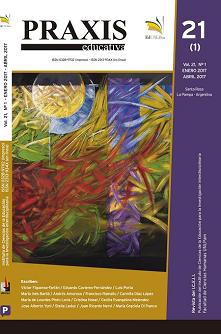Socio-educational inclusion policies enactment in high schools from Catamarca province, Argentina
DOI:
https://doi.org/10.19137/praxiseducativa-2017-21016Keywords:
enactment, educational policies, high school.Abstract
The development of social and educational inclusion policies place members of schools board and other participants as protagonists of the materialization process of policies, i.e., their enactment. We inquire into the way in which they interpret and recreate the text of the policy, managing agreements influenced by their systems of beliefs and class positions. Generally, the inclusion logic of the policies and the values that back up traditional school grammar are in tension. In this work, we intend to reveal the different forms of enactment of the policies, and the beliefs or positions which back up the intermediation between the text and the policies materialization, due to their importance in the subjectivization process of those who receive them. For this purpose, we use empirical material composed of interviews made to school board members and teaching assistants from five schools in the province of Catamarca. In this research, we found intermediations and actions that question the model of rights acknowledgement of the policies and postulate meritocracy related to classic school grammar which provides order in the social and school expected way.Downloads
Downloads
Published
Issue
Section
License
Copyright Notice
Editorial Committee Educational Praxis Magazine:
I hereby declare that I am the author of the article titled (article name), that it is original and my own and that it was not previously published in any other format or medium. I declare to know that the magazine will not charge me any type of fee under any circumstances, nor will I receive any type of monetary compensation If it were accepted for publication in Educational Praxis, I authorize the aforementioned magazine to publish it digitally and to advertise it on its social networks.
If the work is published, I adhere to the Creative Commons license called "Attribution - Non-Commercial Share Alike CC BY-NC-SA", through which it is allowed to copy, reproduce, distribute, publicly communicate the work and generate derivative works, as long as when the original author is cited and acknowledged. This license has been used since September 2018. In 2016 CC BY NC ND 4.0 was adhered to; and in the years 2017 and 2018 (January-August) CC BY NC 4.0.
This CC BY-NC-SA Share Alike license does not, however, permit commercial use of the work. As an author, the journal may establish additional agreements for the non-exclusive distribution of the version of the work published in the journal, it allows me to self-archive the published articles, in their post-print version, in institutional, thematic repositories, personal web pages or any other relevant use. with the recognition of having been first published in this journal.
Educational Praxis adheres to DORA (Declaration on Research Assessment) signed in San Francisco, California, on December 16, 2012, and to the Declaration of Mexico (Joint Declaration LATINDEX - REDALYC - CLACSO - IBICT).















_(1)2.png)


3.png)











_(2).png)






2.jpg)









